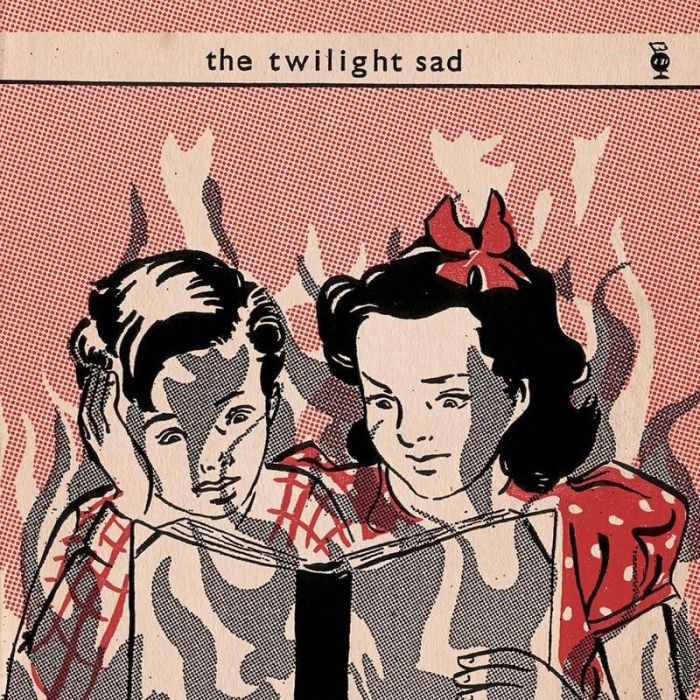The Twilight Sad EP by The Twilight Sad (Review)

I was listening to The Twilight Sad’s self-titled EP when I noticed my wife gesturing to get my attention in the other room. I took off my headphones and asked what’s wrong. “What’s that noise?” she asked. I stopped the CD player, prepared to wrestle with a groaning fridge, running toilet, or some other domestic hassle. That’s when my wife realized that the noise she heard, halfway across the house, was The Twilight Sad’s gloomy wall of noise leaking out of my headphones.
I assured my wife that the volume was not too loud and went back to spinning the entire disc a few more times that evening. Looking back, though, I probably did have the stereo turned up too much. And yet there’s something incredibly beguiling about the Scottish quartet’s sound, something that compels you to turn up the volume and let their layers of guitars, feedback, effects pedals, and accordion(!) roar over you — and eardrums be damned.
The Twilight Sad posess the same fondness for abrasive-yet-beautiful guitar onslaughts as their fellow Glaswegians in Mogwai, and one can even hear bits and pieces of Sigur Rós’ angelic wails even when the quartet’s songs are in the middle of melting down.
However, you never get the sense that the band is simply wearing their influences on their sleeves, or perhaps a little too far back in the shadows of their peers. There’s a rawness, a certain youthful recklessness to their music that never fails to render their music beguiling, even at its loudest and most abrasive. Some of this is a bit more apparent on headphones, where one can hear the odd little sounds that the band subsequently buries beneath layers of distorted guitars, My Bloody Valentine style — bells, toy pianos, accordion, tape loops, and field recordings.
Sure, it’s cluttered, tattered, and imperfect. Sometimes the studio gloss and finish is quite apparent. But as a result, the songs have a greater warmth and humanness to them, even when the band seems thoroughly intent on rupturing your eardrums with an eruption of crashing drums and shrieking guitars — i.e. “But When She Left, Gone Was the Glow.” There’s an expansiveness to these songs, one quite different than the vastness usually conjured up by such walls of sound, but one that is no less effective at giving these songs added dimension and depth.
And then there’s James Graham’s vocals, which wrap up cryptic, affecting tales of youthful heartache and alienation in a thick Scottish burr. At times, his voice is almost drunken and slurred — recalling another fellow Scot, Arab Strap’s Aidan Moffat — and other times lethargic and dreamy, but never less than affecting, adding yet more rawness and warmth to the band’s turbulent sound.
So yeah, my wife was probably right; I probably did have this up too loud the other night. But there’s something both cathartic and nostalgic about it, which seems directly proportional to the loudness. Everytime I listen to the EP’s closer, the nearly nine-minute “3 Seconds of Dead Air,” and especially its noisy denouement, during which it sounds like the band is thoroughly intent on reducing all of their amps to slag and Graham is at his loneliest and most impassioned, I get chills.
The memories — of trying to make similar sloppy-yet-glorious sounds with my roommates in that cold basement in our house on the corner so many years ago — come rushing back. And when the song hits its climax, and the feedback and distortion begin to redline, settling at a point just below the pain threshold, so to does the nostalgia almost become too much to bear. It’s an aching feeling, one that The Twilight Sad capture in both its sublimity and violence.